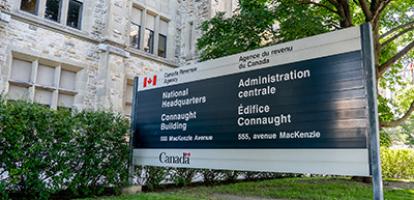From: Konrad von Finckenstein and Elizabeth Denham
To: Canada’s Digital Regulators
Date: June 16, 2022
Re: Canada Needs Coherent Digital Regulation (II)
Yesterday we outlined the regulatory challenges Canada faces in the digital realm as the federal government wrestles with reviews of its competition, Internet regulation and privacy legislation.
We pointed to the UK example where initially three agencies have formed a Digital Regulators Cooperation Forum (DRCF) to develop coordinated and coherent policies. Subsequently the Financial Conduct Authority joined the forum.
Today we examine how this could work here.
Currently, the UK’s DRCF has no statutory basis. Nonetheless, heads of its four member agencies – Competition and Markets Authority, Financial Conduct Authority, Information Commissioner’s Office and Office of Communications –meet quarterly to establish a collective workplan that addresses policy issues and strategic approaches.
The DRCF operates with maximum transparency to pre-empt any potential objections stakeholders may raise. Each member agency has seconded employees to the forum. They form working groups, conduct research, organize conferences and exchange information to the extent that constituting legislations allow. The forum has hired a widely respected CEO who reports to the leadership of the member agencies and interacts with a range of stakeholders.
Employees seconded to DRCF benefit from the knowledge and skills of those working at peer agencies. Through the forum, each regulator comes to better understand the thinking and methods of other agencies. Through cooperation, they avoid working at cross-purposes in support of the public interest. Further, working jointly leads to aligned outcomes for businesses and consumers and improves fairness, consistency and predictability.
Formed in 2020, the DRCF has already received wide-ranging support and applause. Its current workplan focuses on Design Frameworks, Algorithmic Processing, Digital Advertising Techniques, End-to-End Encryption, Data Protection, Competition Regimes and children’s safety online. Those are cutting-edge issues and common concerns. They require and benefit from a coordinated approach.
Unfortunately, Canada has no such forum as of yet. Canada’s regulatory quartet – the Office of the Privacy Commissioner, the Canadian Radio-Television and Telecommunications Commission , the Superintendent of Financial Institutions and the Competition Bureau – all have memoranda of understanding for cooperation and data exchange (as far as legally possible) with each other or with a host of domestic and foreign partners.
But there is no forum for harnessing, steering and creating a coordinated approach like the DCRF.
Whatever form it may ultimately take, we need some sort of official assembly or council whereby regulators can work together on common problems and develop policies for dealing with digital issues.
Such a forum could leverage the longstanding institutional knowledge and sophisticated networks of its members, allowing them to collectively identify, assess and address priority issues in digital regulation. Establishing cross-agency collaborations will no doubt be challenging. But benefits would far outweigh the efforts needed to overcome political roadblocks. Selectively linking the work of a narrow set of regulatory bodies could open doors to stronger collaboration and expanded membership – adding financial regulators into the mix, for example.
A coherent regulatory regime will benefit Canadian companies as well as individuals. Competing in fierce digital markets, our businesses must assure the potential consumer that they follow legal and ethical practices with respect to data processing.
We respectfully urge Canada’s digital regulators to carefully consider the example set by the DRCF. We should emulate that model and adapt it to the Canadian context.
Konrad von Finckenstein is former Chairman of the CRTC and former Commissioner of Competition, and Elizabeth Denham CBE is former UK Information Commissioner and former Assistant Privacy Commissioner of Canada.
To send a comment or leave feedback, email us at blog@cdhowe.org.
The views expressed here are those of the authors. The C.D. Howe Institute does not take corporate positions on policy matters.





